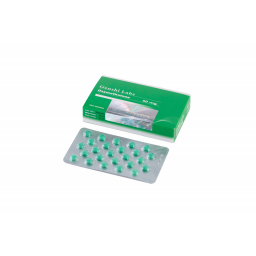


Oxymetholone’s unusual ability to deliver extreme anabolic results despite a DHT-based structure made it a subject of interest when introduced in the 1960s. Approved for anemia and wasting diseases, it was reintroduced decades later to support HIV-positive patients. Its unique 2-hydroxymethylene group contributes to its strong anabolic effect but also produces estrogen-like side effects such as gynecomastia and bloating. Though medically restricted today, it’s still regarded as one of the most powerful oral mass-building steroids ever created.
Llewellyn, W. (2017). William Llewellyn's Anabolics.
United States: Molecular Nutrition, LLC.
Disclaimer: Information provided it this page is for general information only and does not substitute for professional medical advice.
For detailed information about Oxymetholone 50 by Gen-Shi Laboratories, consult with your doctor or healthcare professional.


Llewellyn, W. (2017). William Llewellyn's Anabolics.
United States: Molecular Nutrition, LLC.

Llewellyn, W. (2017). William Llewellyn's Anabolics.
United States: Molecular Nutrition, LLC.

Llewellyn, W. (2017). William Llewellyn's Anabolics.
United States: Molecular Nutrition, LLC.